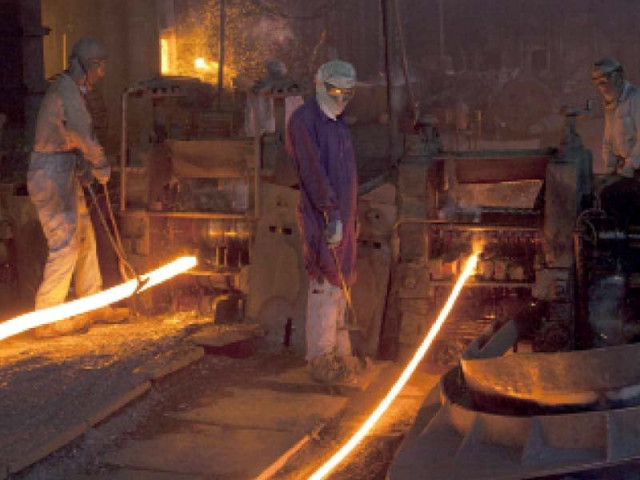There are several loss-making state-owned enterprises in the country, such as the national carrier Pakistan International Airlines and Pakistan Steel Mills. PHOTO: REUTERS
ISLAMABAD:
The government has released Rs 1.366 billion to settle the dues of 411 retired employees of Pakistan Steel Mills (PSM).
According to documents available with Wealth Pakistan, the allocated amount covers gratuity, provident fund and leave encashment.
The disbursement is expected to be completed during the month of October, providing long-awaited financial assistance to retirees.
According to the documents, 899 employees still remain on PSM’s payroll, with salaries funded by government loans provided to PSM to support operations and maintain essential functions while restructuring of the facility continues.
Meanwhile, in a bid to protect this valuable state enterprise, the management has intensified its anti-theft campaign, registering 26 FIRs and making multiple arrests in connection with thefts of copper and other materials.
Recovered materials will be auctioned to generate revenue and offset operational losses. The company has also reclaimed 20 acres of encroached land and plans to reclaim another 38 acres in collaboration with the local administration.
These assets will be returned to industrial use as part of the government’s wider strategy for the revitalization of state-owned enterprises.
Although production at PSM has remained at a standstill since 2015, the government’s continued focus on financial clean-up, land recovery and employee settlement is widely seen as the foundation of the country’s future industrial revival.
The current reform plan focuses on debt clearance, recovery of encroached land and strengthening accountability mechanisms.
Spread over 18,600 acres in Karachi, the venture also includes the Gulshan-e-Hadeed housing project, developed for employees in phases since 1986.
Policymakers view factory revivals as a strategic economic priority, likely to reduce steel imports, generate jobs and support the construction and manufacturing sectors.




